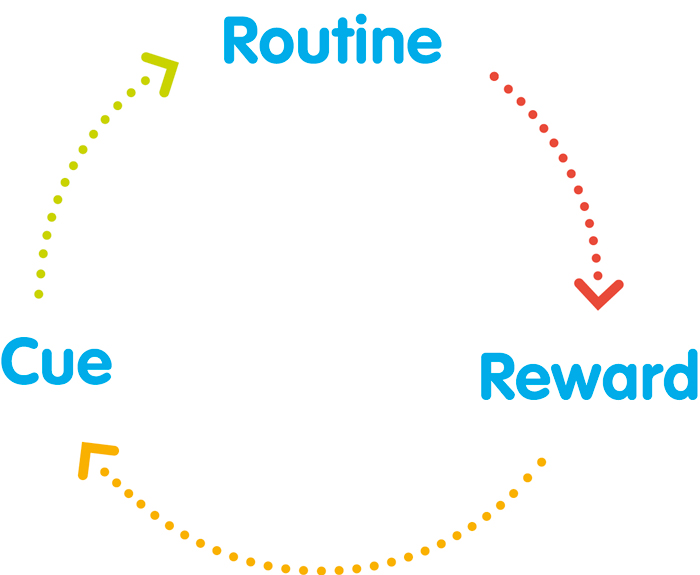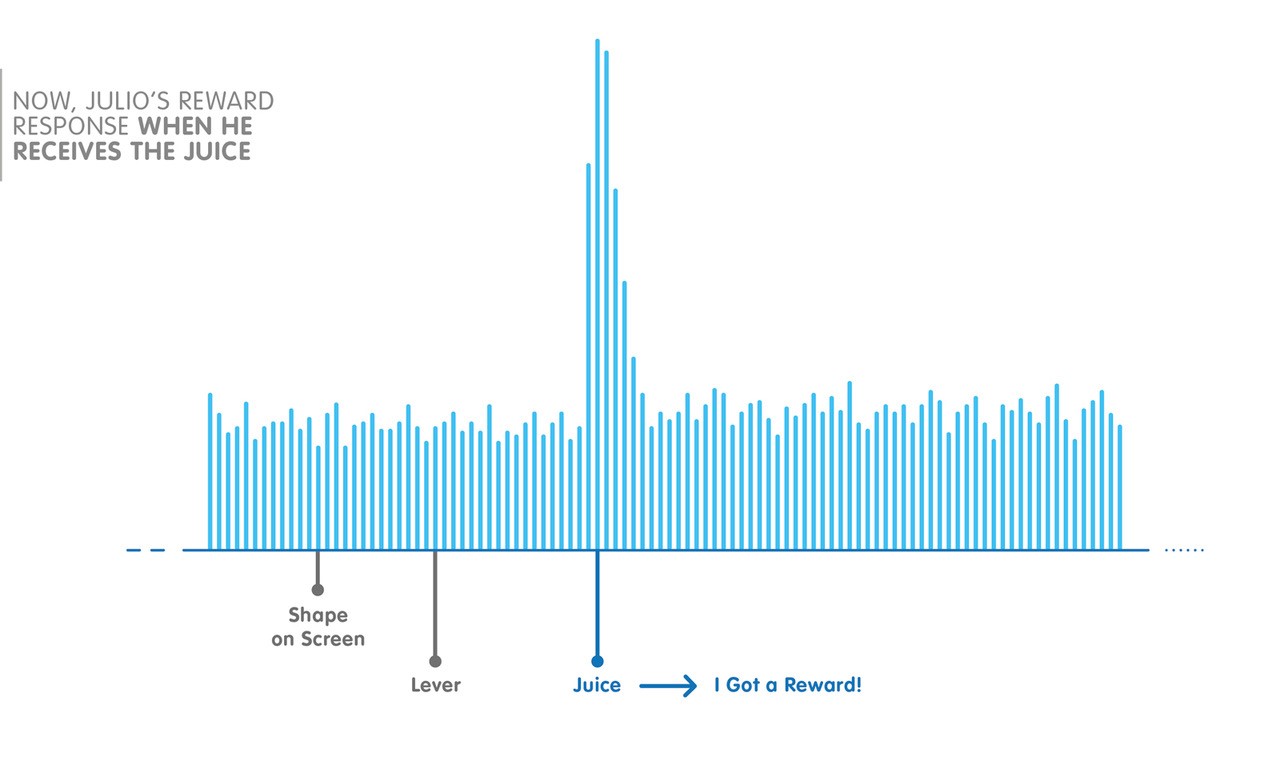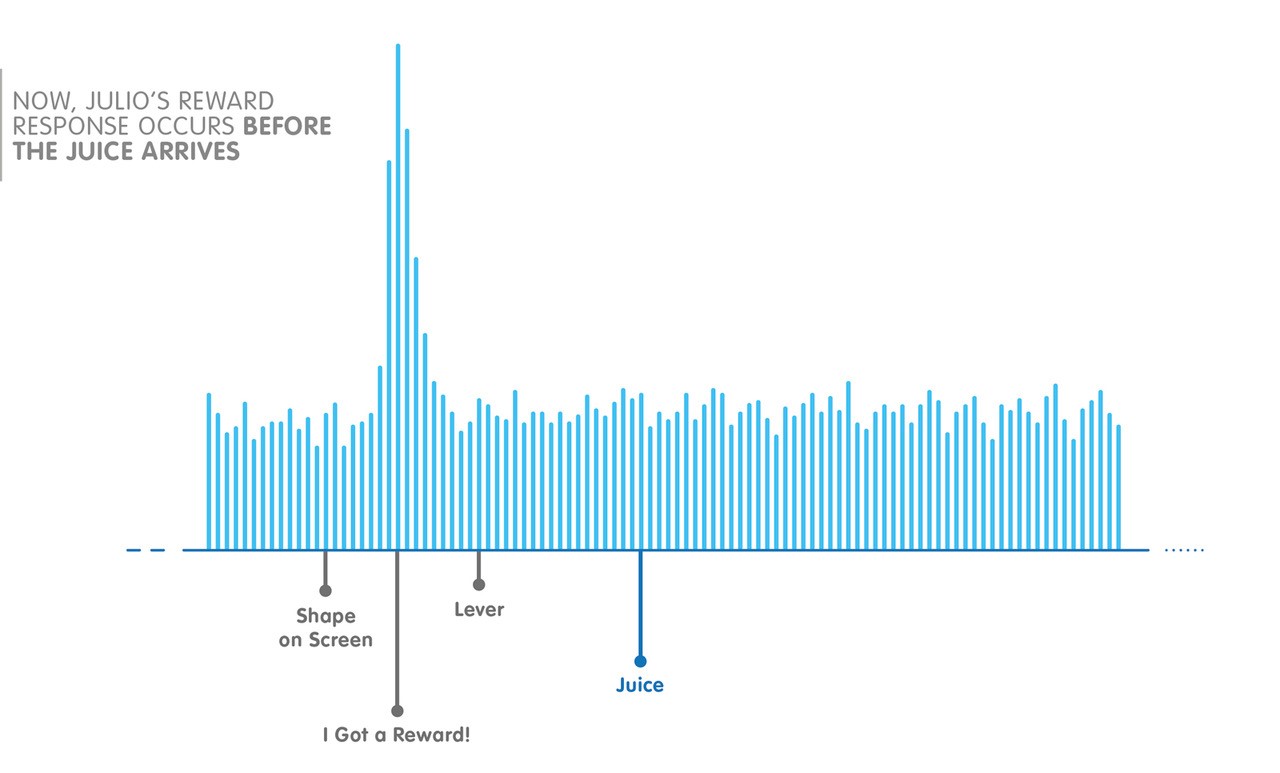Trouble is, listening can be very difficult.
As we mentioned above, without credibility and trust, a salesperson will likely lose the interest of their prospect (or never really gain it). The only chance is to listen (thoughtfully), since there’s no other way to build relationships, uncover buyer needs, and let the prospect know you care about them. Trouble is, listening can be very difficult.
But let’s see what happens to us sales guys most of the time.
According to the pattern we have seen before, we can identify three moments in the activity of listening.
1. There is always a cue, a trigger that tells your brain to go into automatic mode and suggests you a habit;
2. then there is the routine, which can be physical, mental, or emotional.
3. finally, there is a reward, that can be physical, mental, or emotional, which helps your brain to figure out if this particular loop is worth remembering for the future.
Now let’s take the poor listening habit, reflect it into the loop mentioned in Figure 1 and try to cover all three points by asking ourselves questions.
1. The routine.
What can be the routine of this habit? What are the specific thoughts, feelings and actions that make up the routine we’re trying to change?
The routine thoughts, feelings and actions could be:
- This person is too boring. I know exactly what he wants to say: it’s always the same story (sometimes this is so true, and I can picture you nodding your head).

- You start thinking about something else, like “I should answer that email in my inbox, I shall prepare myself for the important topic the CEO will discuss with me tomorrow, etc.”
- You start looking into your mobile, checking notifications as he/she keeps talking.
2. The cue.
This brings us to the second question we need to address in order to develop a good listening habit: can you tell what types of people, situations, thoughts and/or feelings have triggered the routine?
See, this question contains a cue. For example: thinking of a guy as a boring person might be a routine thought that I can change, but at the same time it may be a cue, an indication that he/she is effectively a boring person, and I can’t skip this fact while planning to change this habit.
What I can do, then, is to consider this fact as a cue, or keep it in the routine part based on the situation.
Following our example of the bad listener, cues can be:
- When my manager calls me to review the pipeline.
- When a specific person in my company (who is actually boring) starts talking about his family and his weekend picnic I am not interested at all in.
- After the lunch break, where I can’t make any efforts to listen.
- Friday at 5 PM.
3. The reward.
And so we get to the last point, the reward. Let’s see: what drives the bad habit loop? What rewards do you get from doing this routine?
Some rewards for bad listening can be:
- Feel productive thinking about something else rather than hearing a boring story.
- Getting rid of boredom.
- Reduce the mindware effort by skipping hearing the conversation while you check on your mobile.
Once these three things are identified, we are half the way, and we have understood how our brain is encouraging this bad habit.
Now we need to break this loop and change the routine.
 Watch
Watch


 Anas Assil - 1 August, 2019 - 8 ’ read
Anas Assil - 1 August, 2019 - 8 ’ read


0 Comments